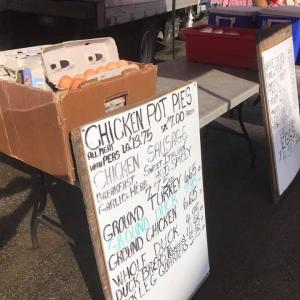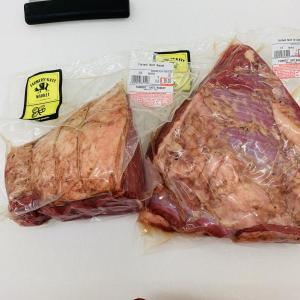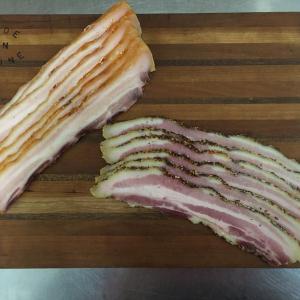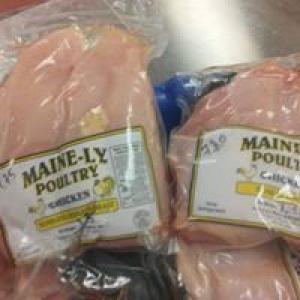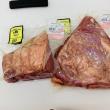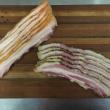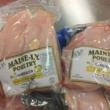Buying locally raised meat becomes favored choice during pandemic
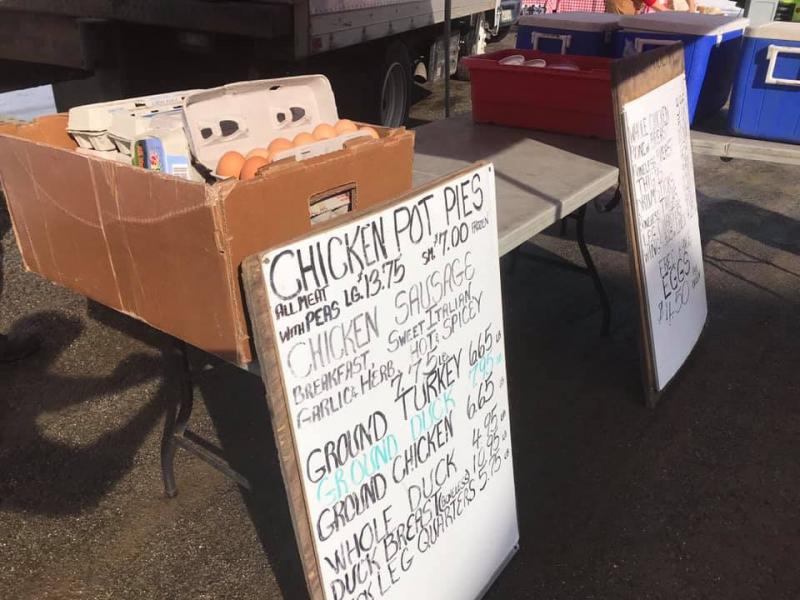 Sign at the Belfast Farmer’s Market. Photo courtesy Belfast Farmer’s Market.
Sign at the Belfast Farmer’s Market. Photo courtesy Belfast Farmer’s Market.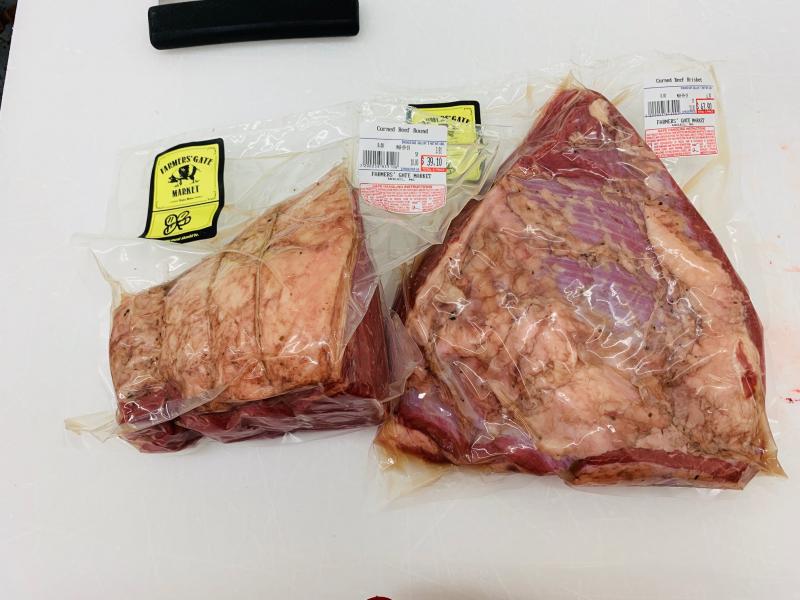 Corned beef, locally raised in Maine. Photo courtesy Farmers’ Gate Market.
Corned beef, locally raised in Maine. Photo courtesy Farmers’ Gate Market.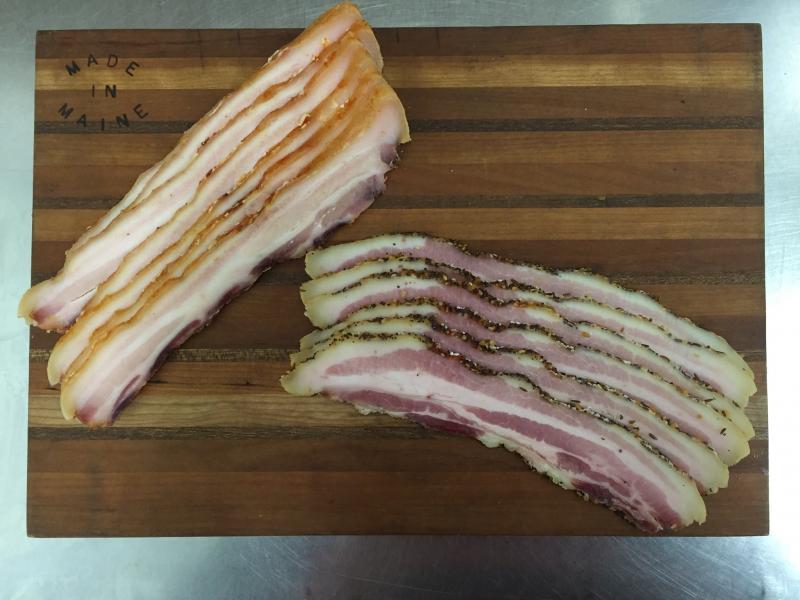 Honey Sriracha and Everything Spice bacon. Photo courtesy Farmers’ Gate Market.
Honey Sriracha and Everything Spice bacon. Photo courtesy Farmers’ Gate Market. 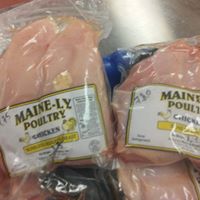 Packaged chicken, raised in Warren. Photo courtesy Maine-ly Poultry.
Packaged chicken, raised in Warren. Photo courtesy Maine-ly Poultry.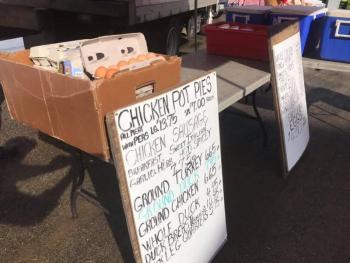 Sign at the Belfast Farmer’s Market. Photo courtesy Belfast Farmer’s Market.
Sign at the Belfast Farmer’s Market. Photo courtesy Belfast Farmer’s Market.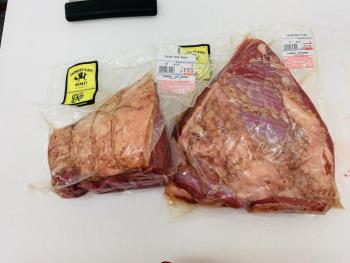 Corned beef, locally raised in Maine. Photo courtesy Farmers’ Gate Market.
Corned beef, locally raised in Maine. Photo courtesy Farmers’ Gate Market.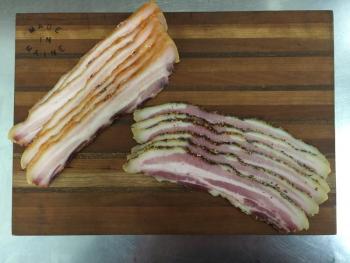 Honey Sriracha and Everything Spice bacon. Photo courtesy Farmers’ Gate Market.
Honey Sriracha and Everything Spice bacon. Photo courtesy Farmers’ Gate Market. 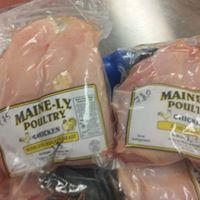 Packaged chicken, raised in Warren. Photo courtesy Maine-ly Poultry.
Packaged chicken, raised in Warren. Photo courtesy Maine-ly Poultry.Meat shortages across the country caused by the COVID-19 pandemic have led more consumers buying locally raised beef, pork, and poultry, and that’s good news for Maine farms.
The shortage problem is not due to production, according to industry experts. The problem is that the food supply chain has broken down because processing plants have had to close down due to workers getting sick, as was the case of Tyson Foods, one of the biggest meat processors in the U.S.
Last month, Tyson had to close down a large pork processing plant in Iowa after several workers contracted COVID-19. According to the Associated Press, other processing plants that had to close down for the same reason included a Smithfield Foods pork plant in South Dakota and a JBS beef plant in Colorado.
The disruption to the meat supply caused hog farmers in the U.S. to kill and dispose of thousands of healthy pigs because they were, “outgrowing barns and occupying space needed by younger pigs.”
That fact alone should be enough to turn the stomachs of most meat consumers. Luckily, a sustainable solution has existed in Maine all along.
Sheep, goats, hogs, cattle, and poultry have always been an agricultural staple on Maine farms with the beef industry rapidly expanding and finding important new markets, according to Maine’s agricultural statistics.
“For the last 10 years we’ve been focusing on a local market and local supply, so we are insulated from what’s been happening with the national and international livestock markets,” said Ben Slayton, co-owner of Farmers’ Gate Market of Wales, Maine, a collaborative organization that bridges the gap between nearly 24 Maine, pasture-based livestock farms and consumers.
“People are reading the papers and seeing the Tyson plants shutting down and seeing the shortages but due to the coronavirus, the demand for meat has skyrocketed, whether it’s panic buying or the national pipelines not able to keep the shelves full,” he said. “We’re now getting customers we didn’t see four months ago, so there has been a crush of demand for the farm products, which is frankly long overdue, in my opinion, but we’re grateful. A lot of our customers were restaurants, and that business has dwindled off due to the global pandemic but now, the individual customers have increased.”
Value of meat more than just price
Chicken is the one product that sees the highest price differences between farm-raised and factory-raised, said Slayton. And with a cash-strapped Maine economy during COVID-19, it’s easy to see why many people choose a $1-2/lb chicken on the grocery store shelves, rather than a farm-raised chicken product at $4-6/lb.
However, the cheapest cost of chicken comes with a steep price.
“Mass-produced chicken and the kinds of cramped methods of raising them and the kinds of growth-hormones added to them are what make this product cheap,” he said. “You can look online and read about the unhealthy conditions; they’re not hidden.” [See: Facts about Industrial Meat Chicken Farming.] So the way you get to a $1-2 per pound chicken is by cutting corners; you’ve got chickens grown in cramped spaces; contract growers working in bad conditions. There are cut corners in every single facet of how that chicken comes to the market as a product. So when customers look at a pasture-raised local chicken, that’s actually the true cost of what a responsibly raised chicken is.”
Where To Buy Locally
Grown Meat
Farmer’s Markets
United Farmers Market of Maine
Natural Food Stores/Co-ops
Farms
“If you ask any of our customers who go from an industrially raised chicken to a pasture-raised chicken, every single one of them is blown away by the amazing taste,” he said.
The pandemic has opened the eyes of many new customers of locally raised products.
“Our business has raised tremendously,” said John Barnstein, owner of Maine-ly Poultry in Warren. “We can barely keep up with the orders we have now. I know the farm stands we sell to are selling a ton of meat and the farmer’s markets are extremely busy. I don’t know what will happen when things go back to ‘normal’ is again, but I hope that people will consider where they’re going to buy their food in the future and support local agriculture.”
One point Barnstein made further exemplifies further why buying local strengthens a weakened Maine economy.
“We process all of our chicken in Gardiner at a plant that employs 30 to 40 people, so buying local is good,” he said. “It supports everybody.”
“We’re grateful for the business we have at a time when people are really struggling,” added Barnstein.
When it comes to buying local, grass-fed animals, Mainers have a plethora of purchasing choices.
Eat Wild has a map and directory of all Maine farms that produce grass-fed meat, eggs and dairy products.
It also has a list of all stores, restaurants farmers markets purchasing and selling grass-fed meat products.
Kay Stephens can be reached at news@penbaypilot.com
Event Date
Address
United States

